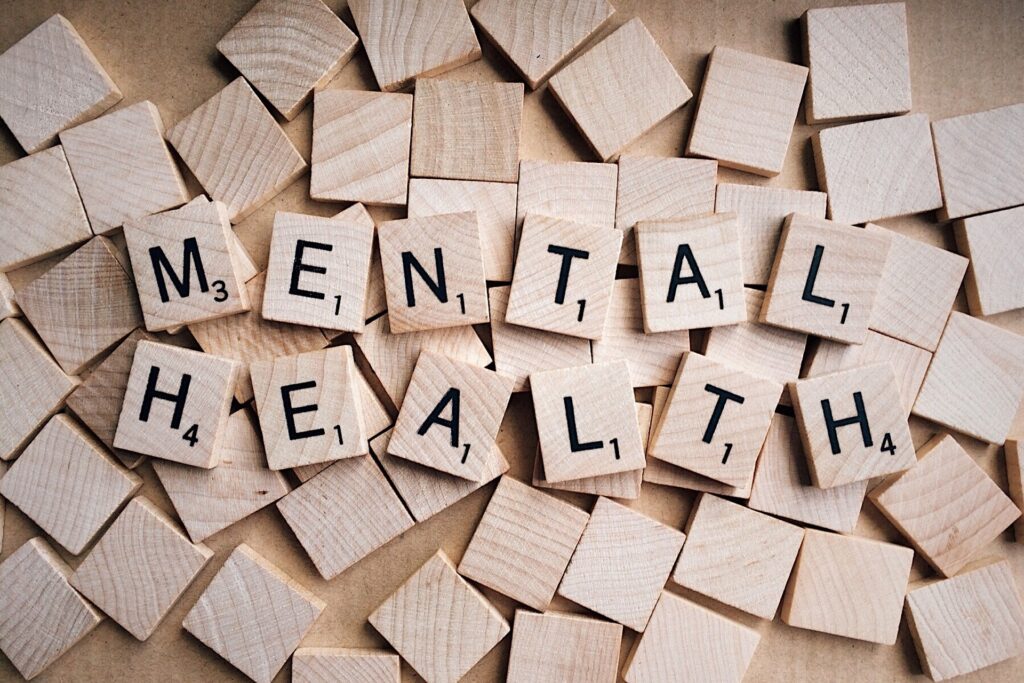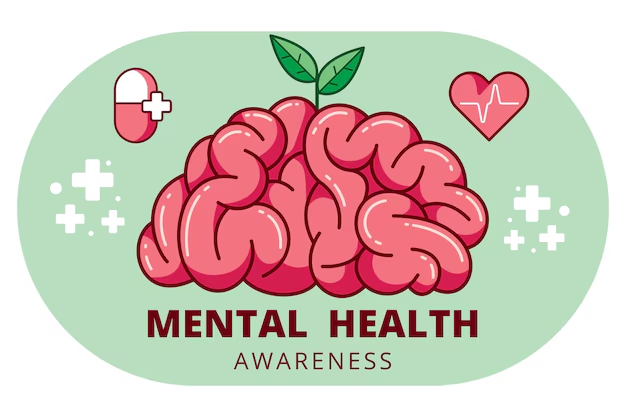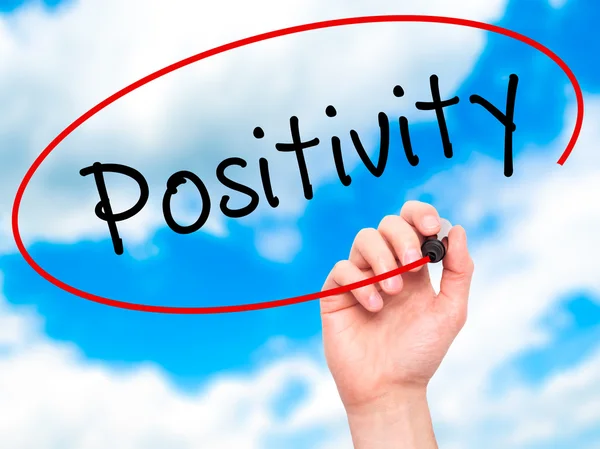
Let’s talk about mental health! It’s something that affects everyone in some way, directly or indirectly. Yet, for many years, mental health struggles have been shrouded in secrecy and shame. Thankfully, things are changing! We’re seeing a growing movement towards destigmatizing mental health, which means removing the negative attitudes and beliefs surrounding mental health conditions.
But why is destigmatization so important?
Here are 10 major reasons:
-
Opens the Door to Early Help-Seeking:
Imagine feeling overwhelmed by anxiety or sadness, but being too afraid to seek help because of the stigma. Many people struggle in silence due to fear of judgment. When we normalize mental health challenges, people feel more comfortable talking about their struggles and seeking help early on. Early intervention can make a world of difference in managing symptoms and improving quality of life.

-
Creates a More Supportive Environment:
Destigmatization helps foster empathy and understanding. When we openly discuss mental health, it allows friends, family, and colleagues to be more supportive. They can offer a listening ear, provide resources, and help reduce the feeling of isolation that often accompanies mental health struggles.
Also Read: What Are Palliative and Hospice Care? Understanding Your Options for Comfort and Care
-
Empowers Individuals to Take Charge:
When we normalize mental health, individuals feel empowered to take charge of their well-being. They can openly discuss their needs, advocate for themselves, and explore treatment options without feeling ashamed. This sense of empowerment is crucial for recovery and living a fulfilling life.
-
Reduces the Burden of Shame and Guilt:
Mental health conditions are not a personal failing or weakness. They’re real medical conditions, just like diabetes or heart disease. Destigmatization helps remove the burden of shame and guilt that individuals often carry. This can significantly improve self-esteem and mental well-being.
-
Promotes Mental Health Awareness and Education:
Open conversations about mental health raise awareness and understanding of different conditions. The more we talk about it, the more people learn about symptoms, treatment options, and available resources. This can help identify early warning signs and encourage help-seeking behavior.

-
Encourages Open Communication and Vulnerability:
Destigmatization allows for more open and honest communication. People feel comfortable sharing their experiences and feelings without fear of judgment. This vulnerability can lead to stronger relationships built on trust and empathy.
Also Read: What is Cyberbullying and Its Impact on Children’s Mental Health? A Complete Guide
-
Breaks Down Stereotypes and Misconceptions:
The media often portrays mental health conditions inaccurately. Destigmatization helps break down these stereotypes and misconceptions. People can learn the facts about mental health, understand the experiences of others, and challenge negative assumptions.

-
Creates a More Inclusive Workplace:
Mental health struggles can impact work performance and relationships with colleagues. When workplaces prioritize mental health, they create a more inclusive environment. Employees feel comfortable seeking support, leading to a happier, healthier workforce.
-
Boosts Overall Public Health:
Mental health is a crucial part of overall well-being. Destigmatization encourages people to prioritize mental health alongside physical health. This can lead to improved mental health outcomes, reduced healthcare costs, and a healthier population.
-
Creates a Ripple Effect of Positive Change:
Destigmatization isn’t just about individual benefits. It creates a ripple effect of positive change. When one person opens up about their struggles and receives support, it inspires others to do the same. This collective shift in attitudes can create a more compassionate and understanding society.

How Can You Help Destigmatize Mental Health?
Here are some simple ways you can contribute to destigmatizing mental health:
- Talk openly about mental health: Normalize conversations about mental health in everyday life. Share your own experiences or stories you’ve heard.
- Educate yourself and others: Learn about different mental health conditions and available resources. Share this information with friends and family.
- Challenge negative stereotypes: Speak up against negative portrayals of mental illness in the media or conversations.
- Be supportive: Let your loved ones know that you care about their well-being. Listen without judgment and offer support if they’re struggling.
- Advocate for mental health resources: Reach out to your local representatives to advocate for increased funding for mental health programs and services.
- Follow mental health awareness campaigns: Engage with mental health awareness campaigns on social media and in your community.
- Lead by example: Be open about your own experiences with therapy, self-care practices, or mental health challenges.
By taking these steps, we can all play a role in creating a world where mental health is understood, supported, and treated with the same importance as physical health.
Resources for Getting Help:
- National Alliance on Mental Illness (NAMI): https://www.nami.org/ – NAMI is the largest grassroots mental health organization in the USA. They offer a wealth of information, support groups, and educational resources.
- National Institute of Mental Health (NIMH): https://www.nimh.nih.gov/ – NIMH is a government agency dedicated to mental health research. Their website provides science-based information about various mental health conditions.
- MentalHealth.gov: https://www.samhsa.gov/ – This government website is a comprehensive resource for information about mental health, treatment options, and finding help in your area.
- The Jed Foundation: https://jedfoundation.org/ – The Jed Foundation focuses on mental health resources and support for teens and young adults.
- Crisis Text Line: Text HOME to 741741 – This free service provides 24/7 crisis counseling via text message.
- The Trevor Project: 1-866-488-7386 – The Trevor Project offers crisis intervention and suicide prevention services to LGBTQ+ youth.
Remember, You Are Not Alone!
Mental health struggles are common, affecting millions of people in the USA alone. If you’re struggling, please know that you’re not alone. There is help available, and you deserve to feel better. Here are some additional tips for taking care of your mental well-being:
- Develop healthy coping mechanisms: Find healthy ways to manage stress, such as exercise, relaxation techniques, or spending time in nature.
- Prioritize self-care: Make time for activities you enjoy that nourish your mind, body, and soul.
- Connect with others: Build strong social connections with friends, family, or support groups. Feeling connected can make a big difference.
- Develop healthy habits: Maintain a balanced diet, get regular sleep, and exercise regularly. These habits can significantly boost your mental and physical well-being.
- Seek professional help when needed: Don’t hesitate to seek professional help from a therapist or counselor if you’re struggling. They can provide valuable support and guidance.
By prioritizing your mental health and reaching out for help when needed, you can live a happier and healthier life. Let’s keep the conversation going and work together to destigmatize mental health for everyone!
10 Major Reasons Why Destigmatizing Mental Health Matters More Than Ever: FAQs
- Isn’t mental health just a personal issue? Why should we focus on destigmatization?
Mental health struggles are not just personal issues. They can impact relationships, work performance, and overall well-being. Destigmatization encourages people to seek help, leading to improved mental health outcomes. This translates to a healthier and more productive population, benefiting society as a whole.
- How do public awareness campaigns help with destigmatization?
Public awareness campaigns educate the public about mental health conditions and available treatments. They often share personal stories, fostering empathy and understanding. This normalizes mental health challenges and reduces the perception that seeking help is a sign of weakness.
- Why is celebrity involvement in mental health advocacy important?
When celebrities openly discuss their struggles, it sends a powerful message. It breaks down stereotypes and shows that mental health issues can affect anyone. This can inspire others to seek help and reduce feelings of isolation.
- Isn’t social media just a breeding ground for negativity? How can it help destigmatize mental health?
Social media platforms can be a powerful tool for positive change. Online communities and support groups connect people facing similar challenges, fostering a sense of belonging and reducing isolation. Sharing personal experiences and finding support online can empower individuals to seek help in the real world.
- How can media portrayals influence our understanding of mental health?
Outdated media portrayals often rely on stereotypes and sensationalize mental illness. More accurate portrayals, however, can educate the public and challenge negative assumptions. When movies and TV shows depict mental health experiences with sensitivity and nuance, it can improve public understanding and empathy.
- Isn’t focusing on mental wellness just a fad?
Prioritizing mental wellness is not a fad; it’s a crucial part of overall health. Just like physical health, our mental well-being affects every aspect of our lives. By taking care of our mental health through practices like therapy or mindfulness, we can lead happier and healthier lives.
- Access to mental health services seems limited. How can that change?
There are ongoing efforts to increase access to mental health services. This includes expanding insurance coverage for mental health treatment, training more therapists and counselors, and utilizing telehealth services to reach remote areas. Improved access can lead to more people seeking help and reduce the stigma associated with mental health challenges.
- Why is it important to address the stigma faced by specific groups?
Certain groups, like men, veterans, and the LGBTQ+ community, might face additional stigma related to mental health. Targeted campaigns and resources can raise awareness within these groups, encourage help-seeking behavior, and create a more inclusive environment for everyone.
- Early intervention for mental health sounds great, but what does that mean?
Early intervention means addressing mental health concerns at the first signs, before they escalate. This could involve seeking help for symptoms like anxiety, depression, or difficulty coping with stress. Early intervention can significantly improve outcomes and prevent future challenges.
- Destigmatization sounds good, but how can I actually make a difference?
There are many ways you can contribute to destigmatizing mental health! Talk openly about mental health in everyday conversations, challenge negative stereotypes, and educate yourself and others about different conditions and resources. Be supportive of loved ones who might be struggling, and advocate for increased mental health services in your community. Every little step counts in creating a world where mental health is understood, supported, and treated with the same importance as physical health.

